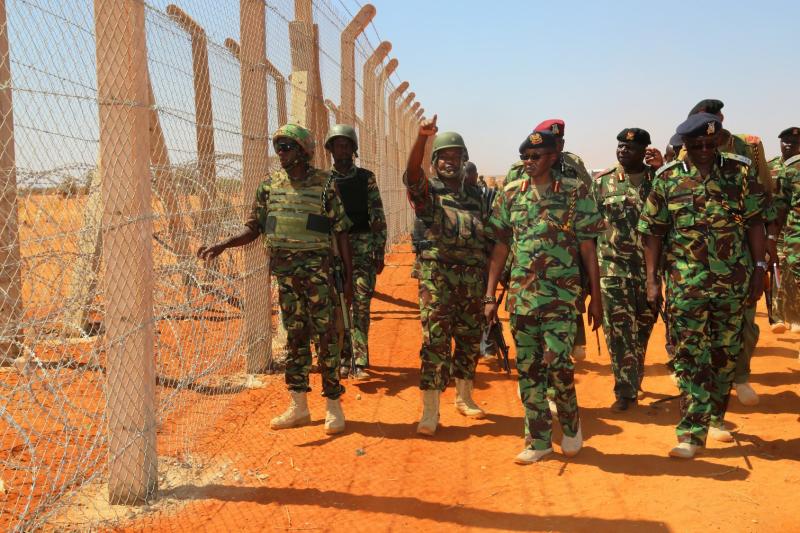
Major F.A Ndeke from the Kenya Defence Forces takes Inspector General Joseph Boinnet (left) on a tour of the construction of the security perimeter along the Kenya-Somalia border on January 25, 2017. [Courtesy]
This week I had the pleasure to visit the border town of Mandera. Like Basel in Europe, a city that connects three countries, namely Switzerland, Germany and France, Mandera was designated as Border Point One or BP1 as local people fondly call it. The town brings together Ethiopia, Kenya and Somalia. All the border points in Kenya have numbers. Therefore, it is easy to suggest that Kenya starts and ends with Mandera after completing the cycle covering five country border points.







